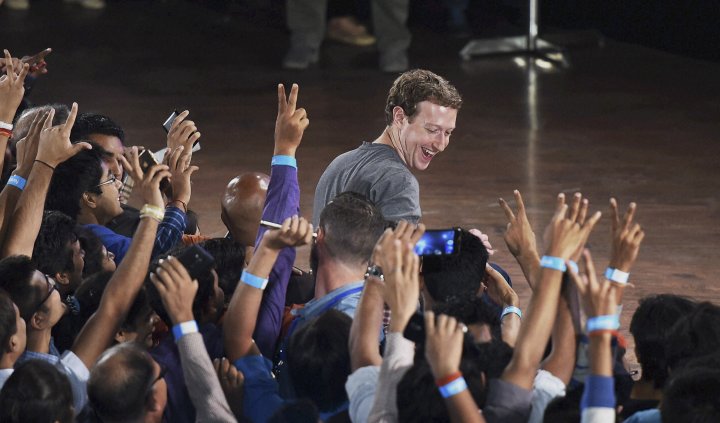
Facebook CEO Mark Zuckerberg interacts with students in a town hall-style meeting at the Indian Institute of Technology in New Delhi, India, on Wednesday, Oct. 28, 2015. Photograph by Shirish Shete — AP
Facebook’s project to spread the Internet throughout India is getting some help by a big Indian telecommunications company.
The social networking giant said Thursday that it has partnered with telcom giant Bharti Airtel to help it debut 20,000 Internet access points, or hot spots, in India. The hot spots are part of Facebook’s Express Wi-FI project to sell cheap Internet access to Indians in regions where web coverage is limited.
Facebook said that it, with the help of other Internet service providers and local businesses, have created almost 700 hotspots in four Indian states where residents can buy access to the web at presumably low costs.
Get Data Sheet, Fortune’s technology newsletter.
Under the initiative, Facebook provides the underlying networking technology to telecommunications companies like Bharti Airtel, which then determine how much to charge Indian residents.
Facebook has doubled down on its Express Wi-Fi project in India ever since regulators in the country ruled in 2016 that its previous initiative, Free Basics, was illegal. Under the Free Basics program, Facebook and its Internet service provider partners, would provide Internet access to Indians for free with the caveat that only certain websites would be available.
However, regulators and Internet activists were concerned about the fairness of Facebook and its partners essentially acting as Internet gatekeepers by determining which websites could be accessed.
Besides India, Facebook (FB, -0.70%) said its Express Wi-Fi project is also available in Kenya, Tanzania, Nigeria, and Indonesia.
Google (GOOG, +0.50%) also has a similar Internet connectivity project in India intended to bring the web to millions of people without access. The search giant’s project is focused on making the web available at Indian railway stations.
Big web companies like Facebook and Google stand to benefit from greater Internet availability in India because it could mean more users and, eventually, more money through increased digital advertising.
[“Source-fortune”]
